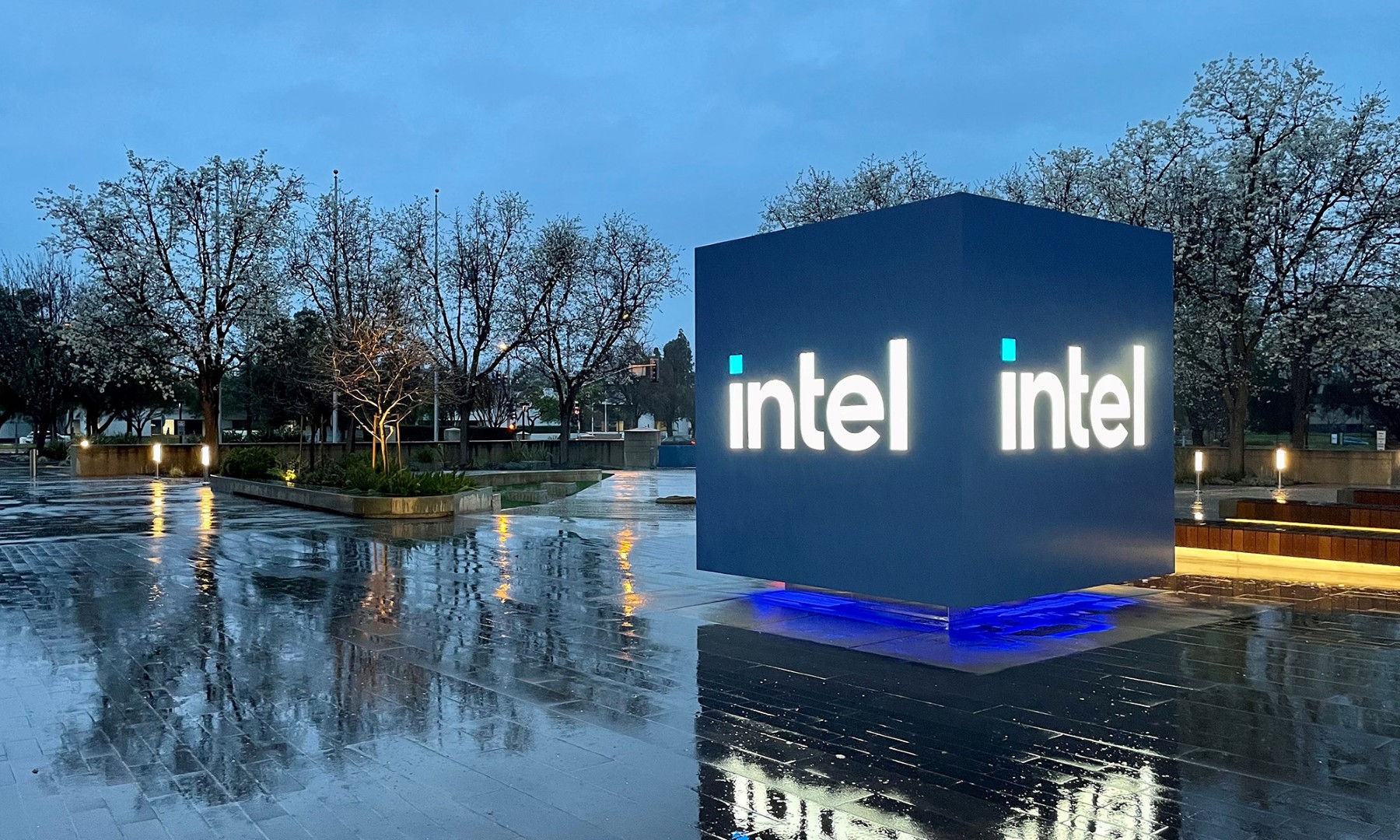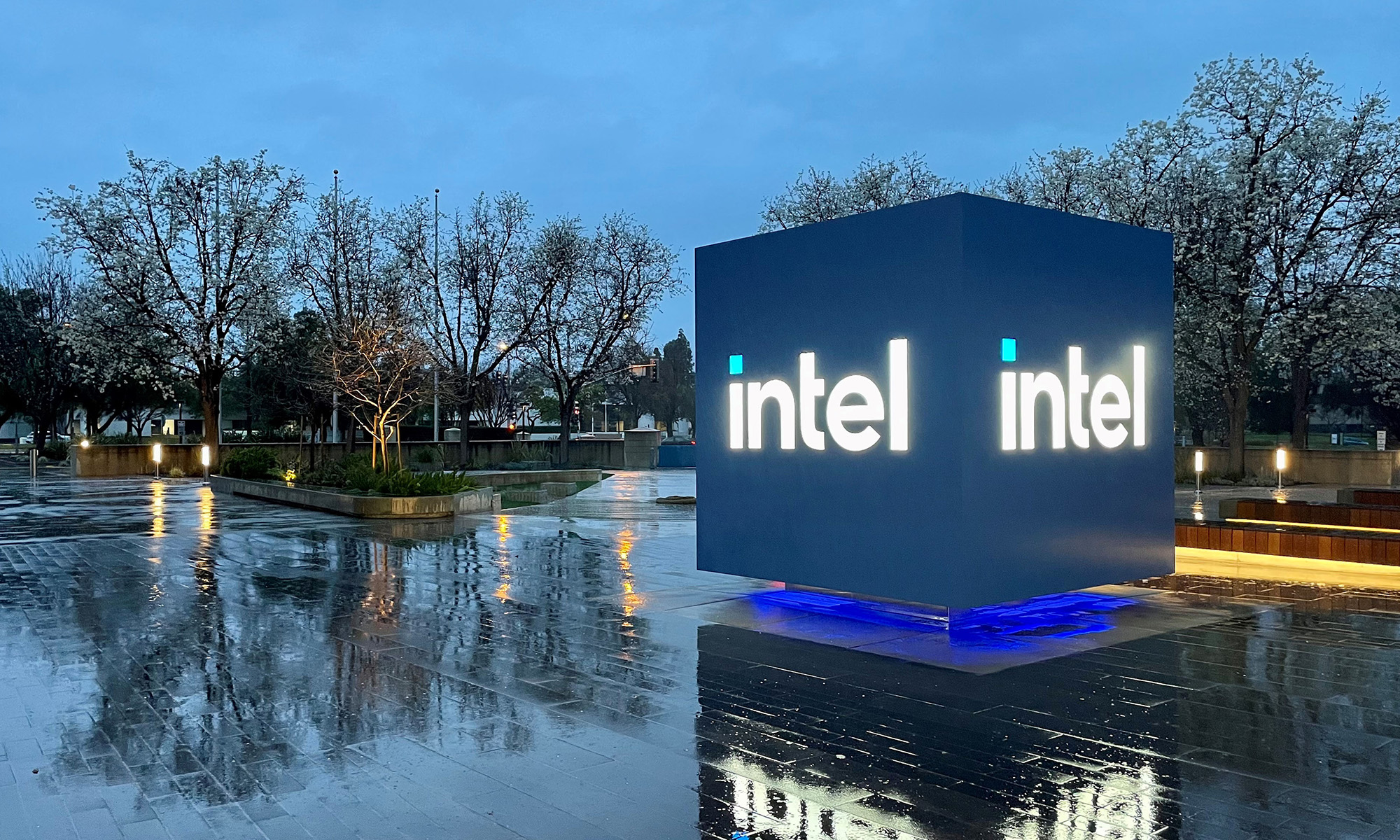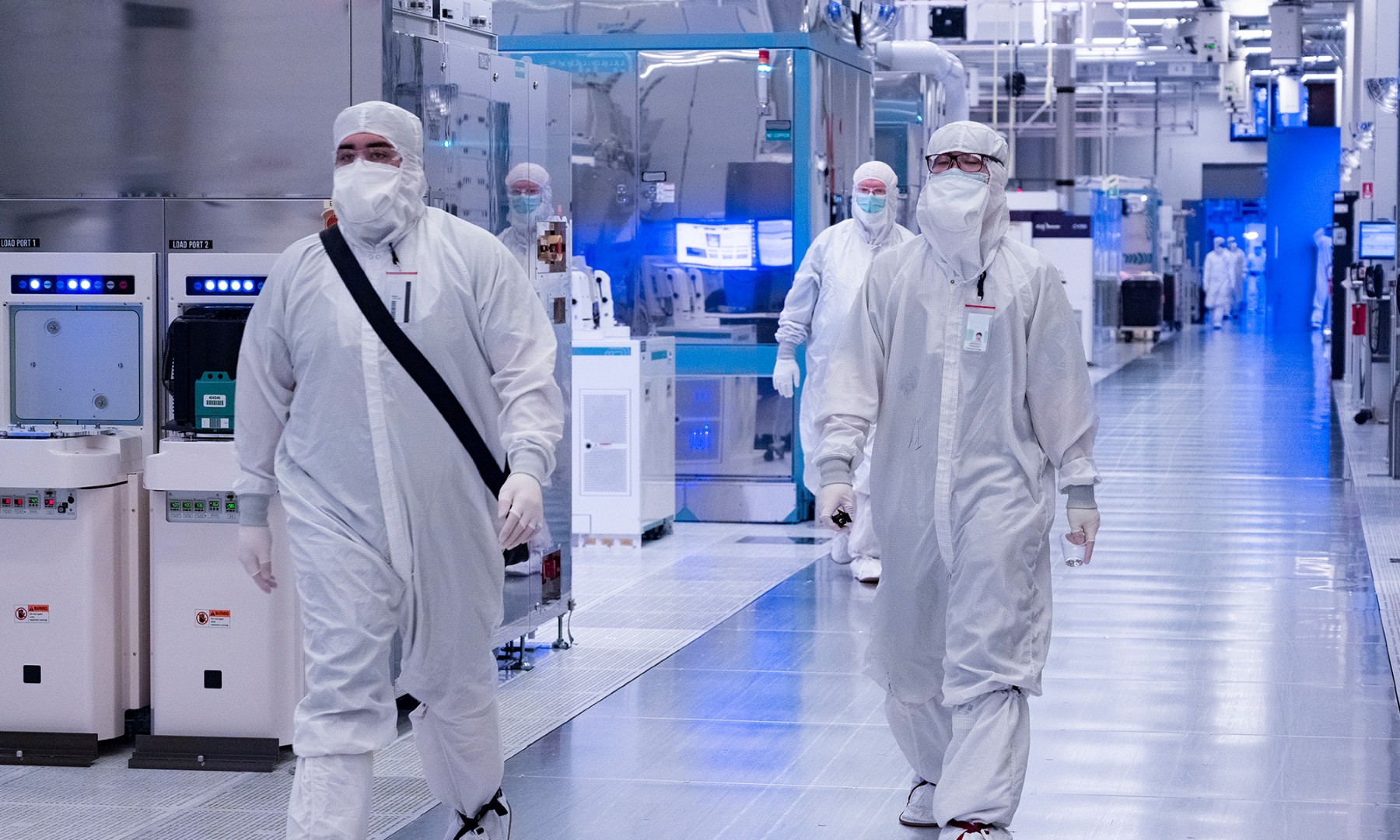In addition to launching its new Skylake-X processor family for the high-end desktop market, Intel (INTC +7.66%) recently teased its upcoming eighth-generation Core processor for the notebook market.
The company had previously said that it expected that its eighth-generation Core processors to deliver a ">15%" performance improvement over its currently available seventh-generation Core processors. Now, Intel claims that its eighth-generation Core processors deliver "more than 30% improvement performance" relative to those seventh-generation Core chips.

Image source: Intel.
Let's dissect Intel's claims and then put this announcement into broader business context.
Moving the goalposts
In a footnote accompanying the performance claim, Intel said that this 30% performance improvement compares the Core i7-7500U notebook processor with an unnamed eighth-generation Core i7 chip.
Both chips have a value known as PL1 ("power level 1") set to 15 watts. Per Intel, PL1 is "a threshold for average power that will not exceed." In other words, both chips are set to consume the same amount of power on average.
The i7-7500U, Intel says, has two cores and four hardware threads (two per core) with a turbo frequency of 3.5GHz. The unnamed eighth-generation Core chip has four cores and eight hardware threads, with a turbo of "up to 4GHz."
The performance lift within the same power envelope is certainly nice, but it's important to note that when Intel put its original ">15%" claim out there, it compared seemingly the same unnamed eighth-generation Core processor with a seventh-generation Core chip known as the Core i7-7600U.
The 7600U runs at a maximum turbo speed of 3.9GHz, an 11.4% boost compared to the maximum turbo on the 7500U.
Indeed, it's clear that the fundamental characteristics of the eighth-generation Core chip haven't improved since the last time that Intel talked about it -- it just picked a weaker seventh-generation Core chip to compare this upcoming eighth-generation Core notebook chip with.
Eighth-generation Core still looks good
Although I'm not a fan of Intel moving the goalposts to try to paint its upcoming eighth-generation Core chips in a better light, I do think that what Intel has cooking with its eighth-generation Core processors looks quite good.
If Intel delivers its eighth-generation Core processors this holiday, as the company claims it will, then that will mark two years in a row of the company delivering new, meaningfully improved processor families for the personal computer market.
Now, Intel has had it a bit easier than it did in the past, as it is delivering refined versions of the same basic Skylake architecture and 14-nanometer manufacturing technologies to enable this improvement, rather than radical changes in either the chip architecture or in the underlying manufacturing technology.
As I've noted before, I'm waiting to see if Intel can continue this momentum in the years ahead, especially as the company faces a transition to newer, more complex 10-nanometer manufacturing technologies and brand-new chip architectures.
If Intel can, then I won't be able to help but become incrementally more enthusiastic about the company's execution and ultimately its long-term business prospects.






